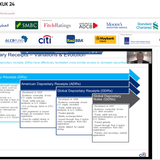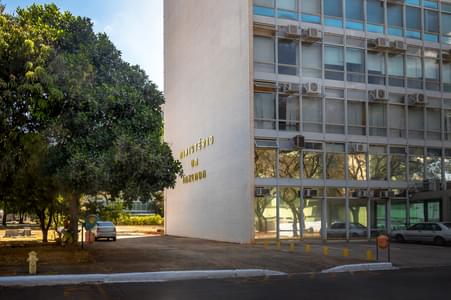A hostile business environment raises firms’ costs. Resources are diverted from productive activity to meet the welter of tax, labour, regulatory and legal demands, and to overcome infrastructure and labour quality deficiencies. If production volumes are not sufficient to outpace costs, the business will become unfeasible – the result of which is, more often than not, concentration and consolidation.
The banking sector in Brazil is a good example of this. Concentration and consolidation has increased in recent years, without translating into higher profitability. Because of the difficult economic climate, extending credit in Brazil is riskier and costlier than the international average, stimulating consolidation of the sector and widening bank spreads. At present, the average is 40%.
As most of you well know, widening spreads among banks is mainly a reflection of the high risk and cost faced by a sector that depends heavily on scalable gains – which it just isn’t delivering; it may perpetuate a negative feedback loop to the economy’s detriment. This is particularly true for banks, because their expansion necessarily depends on increasing their capitalization, and because of the nature of the business and the regulatory rules, which are very restrictive in Brazil.
What explains the rest of the spread?
First, loan default rates are high and recovery increasingly difficult. The risk that a bank will not recover an unpaid loan is extremely high, without even accounting for the procedural costs. According to Febraban, the recovery rate of nonperforming loans is only 16% in Brazil, versus 35% in other emerging countries and 80% in the United States. The legal insecurity in the country, which hampers execution of guarantees and stimulates default, is a huge hurdle. This is one explanation for the sharp cutback in the supply of credit during crises. Banks are more sensitive to the default cycle.
Directed or subsidized credit – real estate, infrastructure or farm lines from BNDES for instance – also plays a role here. According to Nelson Sobrinho, the cross-subsidy between directed and undirected credit explains roughly half of the spread. Another aspect is that directed credit limits the potential of the free market, reducing the base to dilute costs.
High administrative costs are also weighing on the country’s financial institutions. According to the Central Bank, it only represents 4% of the spread. But banks rely on a large number of employees, and they face high labour contingencies from lawsuits. The pro-worker bias of the labour justice system raises legal insecurity regarding legal claims.
All of this is to say that spreads are largely high because of government intervention and institutional inefficiency, not a lack of competition. Although banking concentration does influence spreads, it is not the central factor.
Banking activity is a serious matter that affects people’s lives, demanding careful regulation. But it will take more than just “executive fiat” for the spread to narrow and concentration to diminish. The agenda must now focus on reducing legal insecurity, limiting directed credit and improving the quality of guarantees. This will make the credit market more efficient and functional.









